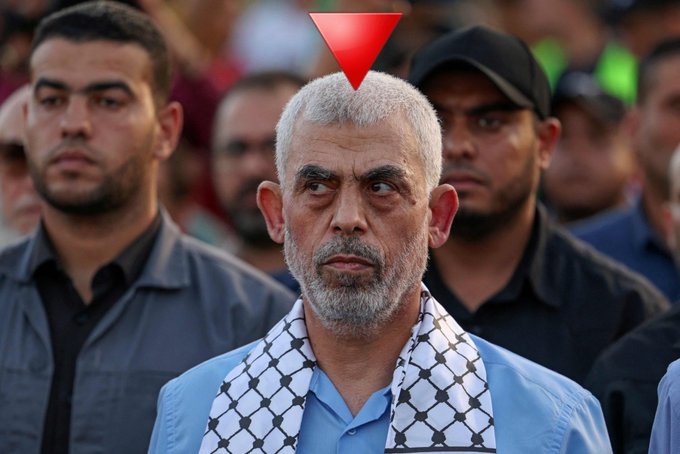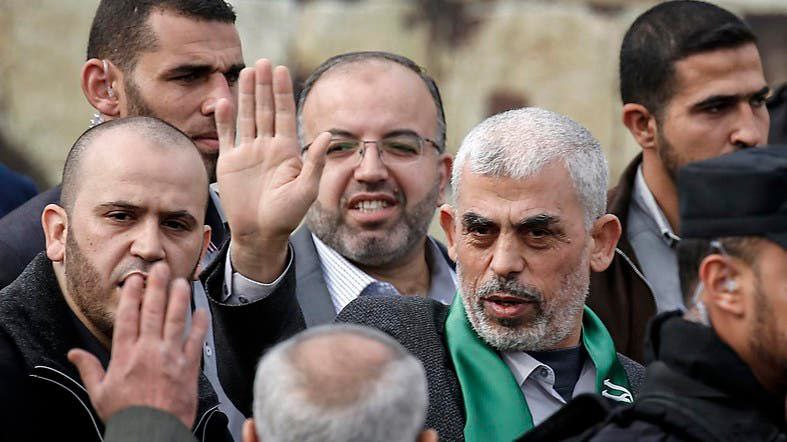Hamas’ decision to name Yahya Sinwar, a long-time military zealot, as its new political chief will centre the group’s decision-making in embattled Gaza, shore up the group’s ties with its primary backer Iran, and leave the prospects for a ceasefire uncertain.
Sinwar’s appointment comes as Israel’s ten-month bombardment of Gaza threatens to spill into an even bloodier regional conflict. Since the start of the conflict in Gaza, Sinwar has had a strong influence over Hamas’s position in ceasefire negotiations and the exchange of captives between Hamas and Israel.
Haniyeh had served as the diplomatic face of Hamas and was a central figure in ongoing ceasefire talks. His abrupt assassination could scuttle already bleak prospects for a halt to the bloodshed in Gaza. The elevation of Sinwar, a key figure in Gaza’s military operations, is seen as a defiant signal that the militant group will carry on its fight.
“The appointment of arch-terrorist Yahya Sinwar as the new leader of Hamas, replacing Ismail Haniyeh, is yet another compelling reason to swiftly eliminate him and wipe this vile organisation off the face of the Earth,” Israeli Foreign Minister Israel Katz said in a statement on X, formerly known as Twitter.
However, the Prime Minister Benjamin Netanyahu rejected plans to kill Sinwar on more than one occasion, according to a report published in Israel’s Maariv newspaper. Netanyahu’s office has denied this.
Israel accuses Sinwar of being the mastermind behind 7 October, a Hamas-led ambush that left roughly 1,200 Israelis and foreigners killed and more than 250 taken into Gaza and held as hostages.
Sinwar’s appointment unifies Hamas’ political and military operations, placing the group’s decision-making squarely inside the war-torn Gaza Strip. Former political chief Haniyeh had been based in Doha since 2019. Hamas moved its political office to Qatar from Syria in 2012.
Sinwar’s appointment carries powerful moral weight as it unifies the group’s military and political wings. Sinwar is considered part of the founding generation of Hamas, a militant group established in 1987 during the First Intifada, or civil uprising against Israel.
Sinwar was born in a refugee camp in Khan Younis, a city in southern Gaza that’s been nearly erased by the past ten months of relentless Israeli strikes. His parents were made refugees from what is now Ashkelon in Israel during the 1948 Nakba, when 750,000 Palestinians were forcibly expelled or fled from their homes during the establishment of the Israeli state.
Some 80 percent of Gaza’s population are refugees from past rounds of war and forced displacement.
Sinwar spent over two decades in Israeli prison and is considered a key architect of Hamas’ organisational infrastructure, helping to set up the Al-Qassam Brigades, Hamas’ armed wing.
After Hamas took political control of Gaza in 2007 following fighting with the Fatah-led Palestinian Authority (PA), Sinwar founded the al-Majd security apparatus, a counterintelligence agency that targets and kills Palestinians who collaborate with Israel.
Sinwar focused on building up the group’s military capabilities and foreign relations. He restored ties with Egypt and rebuilt relations with Iran, which had taken an opposing side to Hamas in the Syrian civil war in 2011.
The one of the most important questions surrounding Sinwar’s appointment, is what it could mean for ceasefire talks. Sinwar’s new role will negatively affect the negotiations.
Compared with the moderation of Haniyeh and Meshaal, Sinwar is perceived as an uncompromising figure.
Meshaal and Sinwar represent two different directions within Hamas. Meshaal is more cautious and pragmatic in his relationship with Iran and its allies, while Sinwar believes that there is no alternative to an alliance with Iran and Hezbollah.
“Organisationally speaking, Sinwar represents continuity rather than change,” he said, with Sinwar and Haniyeh sharing the “same foreign policy and positions towards Iran and its proxies”.
Hamas has said it supports a ceasefire, whereas Israel has said there will be no end to the war until Hamas is defeated. The two sides have regularly exchanged blame over the impasse.
Sinwar’s appointment would strengthen the group’s ties with Iran, Hezbollah, and Yemen’s Houthi movement, a coalition often referred to as the ‘axis of resistance’.
Sinwar has been one of the figures most supportive of enhancing relations with the axis. That could explain why Sinwar was the group’s unanimous choice to succeed Haniyeh. “What enables Hamas to have a strong presence in the world is the military support they receive from Iran, and the backing they get from Hezbollah.





